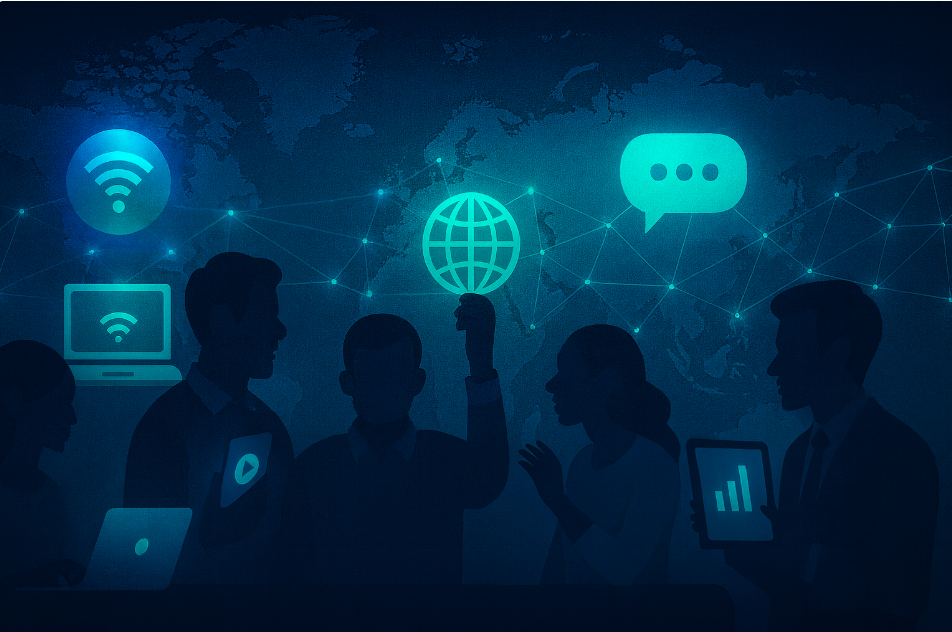
Peer learning has always been a powerful method of development, but globalization and digital transformation have radically expanded its reach. No longer confined to shared office spaces or localized teams, peer learning can now occur between colleagues, partners, and even customers across continents. In the context of extended enterprise training, this evolution presents a compelling opportunity: the Virtual Exchange.
A Virtual Exchange is more than just a Zoom meeting or a Slack channel. It’s a structured, scalable environment where global peers exchange knowledge, provide mentorship, and collaboratively solve business problems. With the right learning management system (LMS) and strategy in place, organizations can unlock the untapped value of globalized peer learning.
Rather than being a barrier, distance has become an asset. In peer learning programs powered by modern LMS platforms, organizations can match employees, resellers, or customers from different regions to share perspectives that may otherwise remain siloed. This kind of exposure accelerates innovation and drives stronger engagement.
For instance, a sales leader in Singapore might exchange go-to-market strategies with a peer in Germany, resulting in a hybrid approach that’s more adaptable across markets. Or a product specialist in Brazil could provide field-level insights that help inform a new feature rollout in North America. These interactions not only promote learning but build empathy, resilience, and creativity across borders.
Traditional mentorship relied heavily on in-person dynamics. In contrast, virtual mentorship programs can scale across time zones and geographies. They connect junior professionals with global experts in their field, bringing in a wide pool of experience that fuels both personal and organizational growth.
Learning platforms that support globalized workforce development should include features like asynchronous content sharing, discussion forums, AI-driven matching, and multilingual support. These tools help ensure meaningful connections and high participation rates.
Today’s peer learning doesn’t just happen at a desk. It’s happening on mobile devices, in transit, during field work, and across flexible schedules. Mobilized learning ensures that peer knowledge exchange is accessible, on-demand, and adaptive to the learner’s context.
This level of convenience is essential for training dispersed teams, remote partners, or field service technicians. When knowledge is available in real time and in relevant formats, learners are more likely to engage, apply, and retain it.
Customers are no longer passive recipients of training—they’re active contributors. A virtual exchange model allows top customers to mentor new users, participate in product advisory groups, or share best practices through user forums. These relationships not only reduce the training burden on internal teams but foster a sense of community that builds loyalty.
Customer-centric peer learning initiatives also open a feedback loop for continuous improvement. By listening to how different users approach challenges, organizations can fine-tune their offerings and uncover new use cases.
When an organization embraces globalized learning, it gains access to a broader range of skills, experiences, and cultural perspectives. This diversity enhances problem-solving and leads to more inclusive, well-rounded solutions.
Whether you’re developing new onboarding programs, rolling out compliance training, or enabling channel partners, peer learning environments that span geographies allow you to build stronger, more sustainable programs. You’re no longer limited by local expertise—you can tap into a worldwide network of insight and support.
To make virtual peer learning work at scale, you need the right infrastructure. That starts with an LMS designed to support global collaboration. Look for capabilities like:
LatitudeLearning supports these needs and more, enabling organizations to connect and empower their global workforce and extended enterprise through scalable, personalized learning experiences.
As organizations continue to adapt to hybrid and remote models, the value of peer learning is only increasing. A virtual exchange, supported by a modern LMS, transforms distance into an engine for collaboration, innovation, and growth.
Get a demo of LatitudeLearning today and see how globalized peer learning can unlock new value across your extended enterprise.